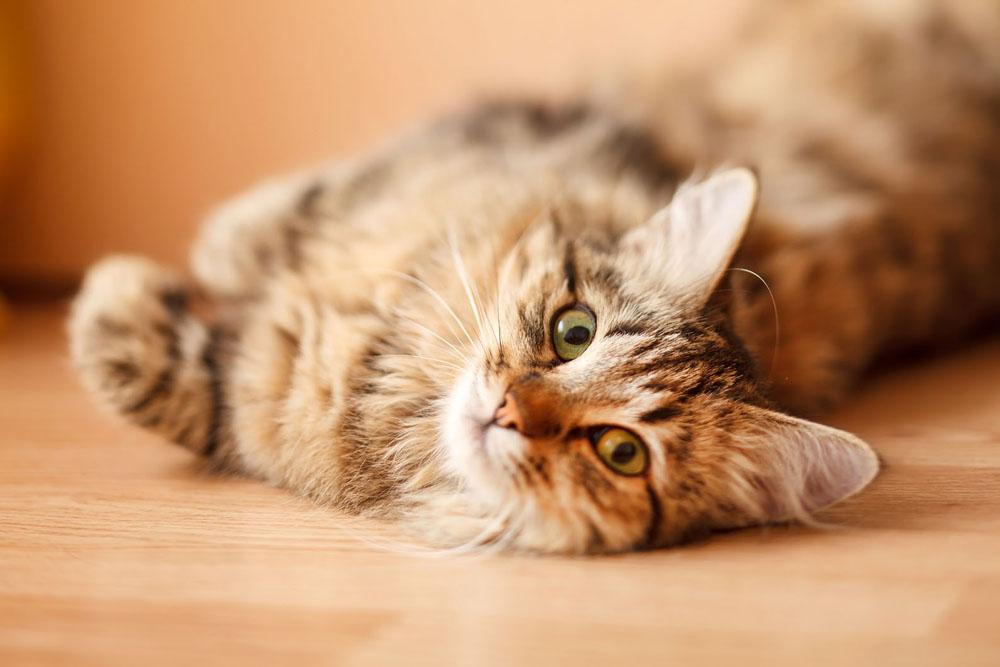Causes of Behavioral Issues in Cats

- posted: Sep. 11, 2023
Causes of Behavioral Issues in Cats
If your cat has recently been acting unusually, you probably feel frustrated. Don’t fret; you’re not alone! About 96% of feline owners admit that their pet has exhibited a behavioral problem. Admittedly, felines can sometimes be a little eccentric. However, when they depict outwardly unusual tendencies like aggression, visit us at Magruder-Tabb Animal Clinic in Yorktown for a check-up. Our veterinary care professionals will help you get to the root cause of your feline companion's problems.
Common Behavioral Problems in Cats
As a first-time feline owner, distinguishing between normal and abnormal behavior can be challenging. Based on our experience handling felines, we’ve shared a few behaviors that indicate underlying issues with your feline friend. Here are a few you should know.
Your Cat Is Too Aggressive
Feline aggression can happen for different reasons. It could be that they’re suffering from anxiety or stress. Sometimes, this problem arises from an underlying medical condition, causing hormonal changes or pain in the feline. Remember that such behavioral tendencies can occur when your cat is playing, particularly when over-stimulated. The only way to be sure whether your feline friend has behavioral issues is to book a veterinarian checkup with us.
The Cat Eliminates Outside the Box
Urinating and defecating outside the litter box is a common behavioral issue in cats. Felines use scent to communicate, so when you notice that they are eliminating outside the litter box, it’s a sign of fear or pet anxiety. When you bring a cat that house soils to our clinic, we will perform basic blood analysis and a neurological exam to determine the root cause of the problem. This behavior can also occur if you don’t clean the litter box regularly. So, scoop it every day and replace the litter every two weeks.
What to Expect When You Bring a Cat With Behavior Issues
When you schedule a consultation for your feline's behavioral problem, our veterinary professional will perform a physical exam and blood tests to check for medical causes. When we rule out the possibility of health conditions, we’ll take a behavioral history of your feline before making a diagnosis. The history covers aspects like the schedule of your cat, duration, and frequency of the problem, age of your cat at the start of the problem, etc.
We’ll also ask you about the “ABCs” of your cat's issue. This means we’ll want to know what happens before and immediately after the behavior. Since how feline act changes as they grow and mature, we may request you to tell us how the problem started. Diagnosing behavioral change isn’t a one-time event, so we may schedule several appointments and ask you to complete a questionnaire regarding your feline's behavioral patterns. This will help us identify whether the signs match a specific diagnostic criterion, like fear or aggression.
Get Quick Relief for Your Cat’s Behavioral Issues
When your pet behaves unusually, contact Magruder-Tabb Animal Clinic in Yorktown to request an appointment. Are you looking for a veterinarian near me? We have a team of qualified veterinarian professionals who’ll work with you to fix your feline's behavioral problems quickly.
Location
Find us on the map!
Magruder Tabb Animal Clinic
105 Ascot Dr
Yorktown, VA 23693, US
Hours of Operation
7:00 am - 5:00 pm
7:00 am - 5:00 pm
7:00 am - 5:00 pm
7:00 am - 5:00 pm
7:00 am - 5:00 pm
8:00 am - 12:00 pm
Closed

